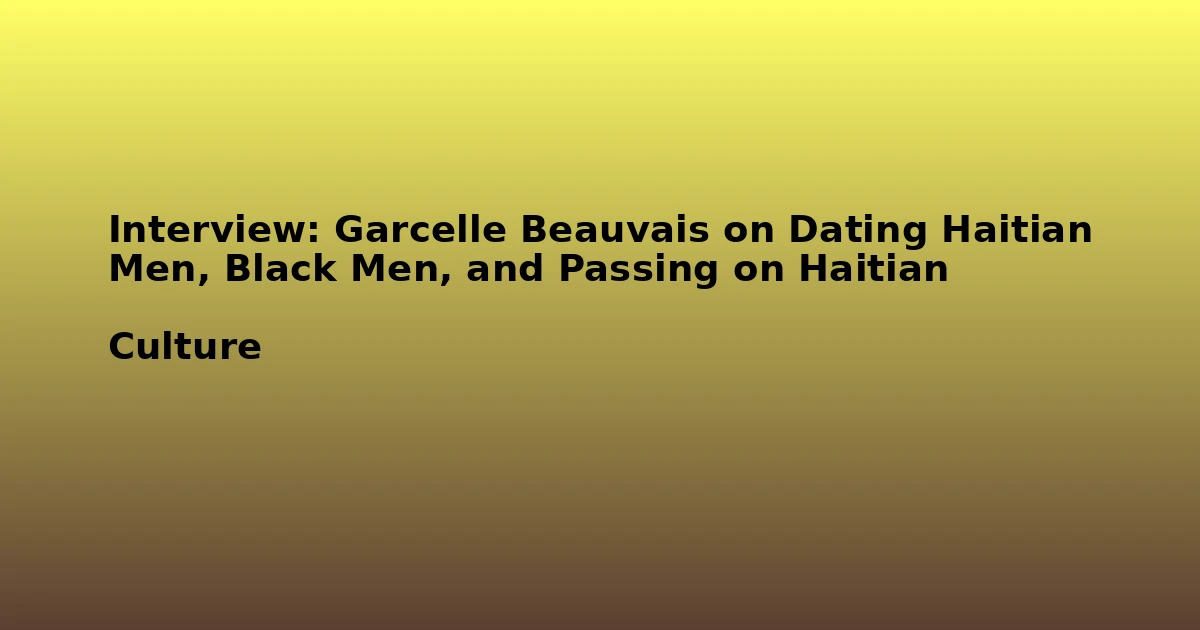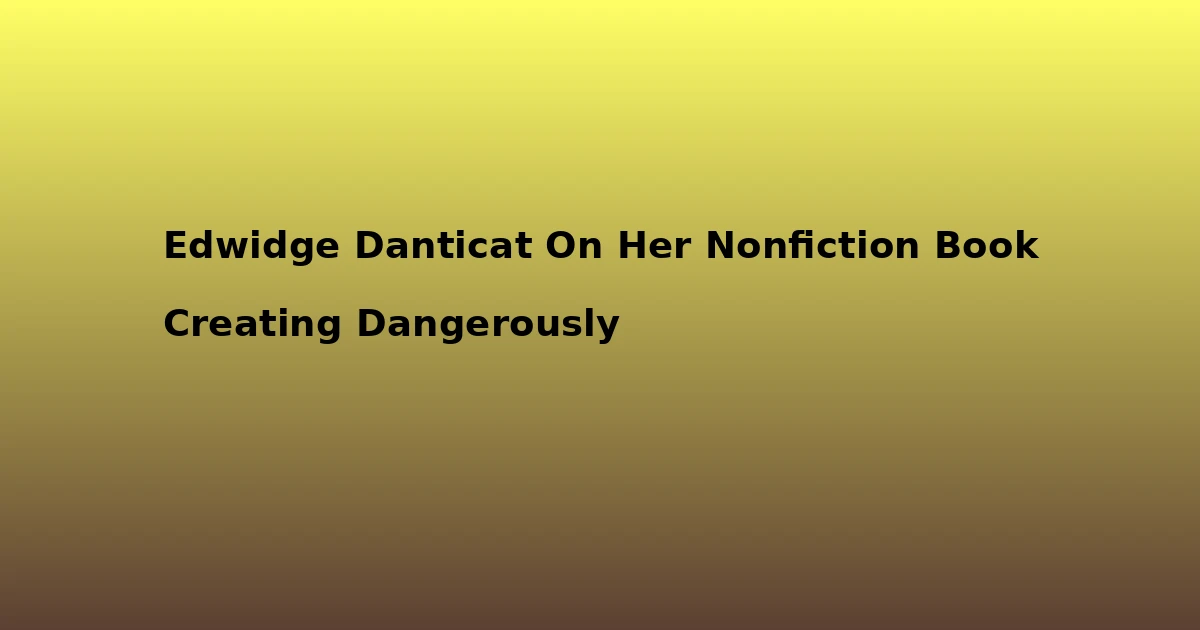If you were to ask a Haitian—actually anybody—to put together a list of the best books about Haiti written in the 20th Century—Elizabeth Abbott’s book Haiti: The Duvaliers and their Legacy will most likely make the cut. Although published in 1988, the tome—for a long time—has been one of the most leafed-through books about Haiti.
Sometime people even forget that Abbott, a writer and historian who holds a doctorate from McGill University also writes about animal rights, the environment and women’s issues—so great is the tendency for some to view her as a Haiti expert.
Haitians sometimes resent it when a non-Haitian tries to makes sense of their history, but Abbott, whose combined books have been translated in a total of 19 languages—doesn’t seem to get much of a side eye. The title of her latest book about Haiti, entitled Haiti: A Shattered Nation just might inspire some eye rolling. Shattered nation?
What sort of title is that? A little on the overly dramatic side, one thinks. But let us allow Dr. Abbott to explain herself!
Q & A
The title of the book is almost dramatic in scope: . As someone who knows Haiti so well, do you think it deserves some of the bad press it has been hit with?
The title, of course, refers to the earthquake that shattered Haiti on every level by killing hundreds of thousands of its people, destroying much of its infrastructure, cratering roads and buildings and cities, and destroying wide swathes of the countryside. But, like all shattered nations – think post-Civil War USA or post-World War II Europe, for example – the rebuilding process in Haiti is fraught with difficulties but also inspires new ways of thinking and – hopefully, doing.
As for Haiti’s bad press: a lot of it has targeted legitimate issues, for example, the US strategy of essentially destroying Haitian agriculture to force its people off the land and into the factories of urban industrial parks where they would become low-waged factory workers and the consumers of food imported from the US. Another valid target is the the undermining of the Haitian government by an international network of often-competing NGOs whose raisons d’être are catastrophes such as Haiti’s earthquake. Instead of cooperating and coordinating, most squabbled, double-dealt and focused on their own interests.
Remember Oxfam’s stinging re¬port: Haiti Still Buried Under the Rubble of Dueling NGOs? And let’s not forget well-deserved criticisms of the Haitian elite, educated, urbane and well-connected, most of whom who continued to play a self-serving role. These realities may make for uncomfortable reading, but glossing over them is out-and-out unconscionable.
As a historian, you do a great deal of research. Is there anything that came across as surprising while you were conducting research for this second book?
I’ll have to repeat what I’ve just said about agriculture and NGOs. Research confirmed that what had been merely conjecture based on anecdotal evidence was actually true. Documenting that was both astounding and saddening.
You’re primarily an historian. Do you ever think about writing a non-historical book about Haiti?
Not really … though you never know! For example, I’m certainly intrigued by the possibilities of ti-mi or millet, the ancient grain that grows so quickly and flourished even in arid soil.
Ti-mi has been consigned to a much less desirable staple not because it is less nutritional – it isn’t! – but because of the nearly global primacy of rice, whose producers have successfully won the cultural, advertising and trade wars. But I haven’t yet figured out how to tackle the subject. Perhaps just talking about it will encourage someone else to take it on!
By the way, when I lived in Haiti I was an active environmentalist and wrote a non-historical play, “Bonjour, M. Audubon”, televised on Télé Haiti as part of the national Audubon Society’s 1984 Bicentennial Celebration of Haiti’s native son Jean-Jacques Audubon, known in North America as John James Audubon.
How did your interest in Haiti’s history begin?
I was teaching history in my hometown of Montreal and my reading led me to Roi Henri Christophe, who fascinated me. I read about and pored over photos of the Citadelle and Sans-Souci Palace, and decided to go to Cap Haitien to see them for myself. But at the Port-au-Prince airport on that first visit, I met a very nice Haitian and that was it.
He began to visit me in Montreal, and soon proposed. We married the next summer and I moved to Port-au-Prince. From then on, I immersed myself in Haitiana, including Haitian history.
As someone who has been watching Haiti closely for decades, where do you think Haiti is headed?
Historians have enough trouble trying to make sense of the past! But I’ll take a stab at answering your question if you will permit me to rephrase it. Specifically, I’ll touch on what I think are several things about today’s Haiti that are really promising.
Heading the list are the millions of young people and the possibilities of education, which is increasingly a government priority. Closely related is the Diaspora with its inexhaustible reserves of talent, knowledge, skills, financial resources and powerful connections. Here, also, are some promising ventures: the fairly-traded, organic coffee and other cooperatives; solar energy projects that could and should redesign and vastly improve daily life; the resurgence of artistic creativity that the earthquake briefly interrupted; and the embrace of technological know-how that connects most Haitians to the outside world.
One of my favorite personal photos is of an ox tethered outside of an Internet Café on a rural road. And all this is without even mentioning the growing possibility of mining immense reserves of copper, silver and gold.
Do you have a favorite era in Haitian history?
I’d have to say the hopeful eras: immediately after Independence in 1804, Estimé’s policies and early successes, and the first weeks after the Duvaliers’ fled, when there was such euphoria in the air, so much hope and anticipation, such a strong sense of possibilities.
In the late 1980s, you wrote your first book about Haiti. What made you decide to write Haiti: Shattered Nation?
The earthquake. Until then I had no interest in writing anything except the occasional blog about Haiti but after the earthquake, when I was in sudden demand for media interviews and as a guest-speaker at Haiti fundraisers in Canada, I realized that the questions being asked: Why was the relief effort so glacially slow?
Where were Haiti’s president and government? Who—if anybody—was running the country: its—seemingly— invisible government? The—all-too-visible and vocal—Americans and other foreigners?
Where was all the pledged aid money? It was clear to everyone that the answers to those questions were mired in the past, and publishers scrambled to acquire books about Haiti’s history, mine among them. At first I was reluctant.
I’d already said what I wanted to when I wrote Haiti. But the deadliness of the earthquake and the relentless horror of its aftermath convinced me that I should bring the story up to date, and so I finally agreed to devote the next year of my life to writing it.
Between King Henri Christophe, Emperor Soulouque, and Emperor Jean-Jacques Dessalines, which Haitian monarch or emperor do you find most fascinating?
I have always had a huge respect and admiration for King Henri Christophe, accompanied of course by an equally huge regret for his admittedly egregious failings. But what a genius he was, and what magnificent visions inspired him!
Can you please set the record straight for us once and for all? Did Defilée, the woman historians say buried Jean-Jacques Dessalines’ decapitated head really suffered from mental illness?
Alas, I’m not the one to pronounce on this! That’s the province of scholars who delve deeply into these personal histories. But I’d also love to know, and eagerly await a final pronouncement on the matter.
And also, does the Haitian flag really have religious connotations like many pundits claim?
I think the flag evokes all sorts of historic memories, ideals and goals to different people. Perhaps it also has, or evokes, religious connotations. All I know for sure is that it has a fascinating history!
When was the last time you visited Haiti?
I just returned from Haiti last week.
Last Updated on December 4, 2025 by kreyolicious



